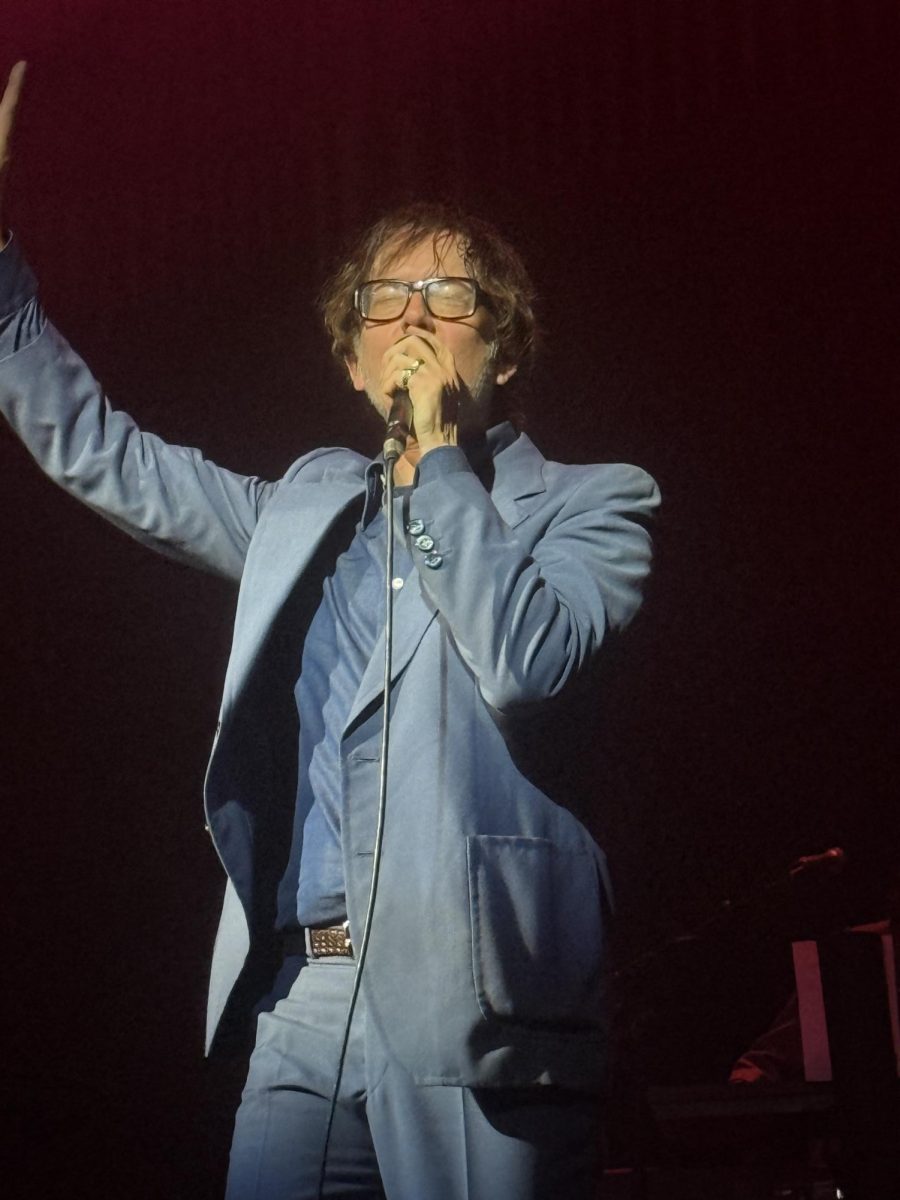
Thomas Merzlak
Pulp frontman Jarvis Cocker performs "Spike Island" at the Tabernacle in Atlanta.
It’s like the 90s all over again — the biggest and loudest Britpop band has once again overshadowed the cleverest and best. Oasis has set aside their differences in the name of becoming wealthier than God, and the conversation around their ticket prices and whether or not they’re any good live has crowded out some more exciting news.
Pulp, one of the other “big four” Britpop bands, has returned to the stage in support of a brand new album. The record is fittingly called “More,” and it’s very good.
Jarvis Cocker and company began debuting new songs during their final run of 2024 shows before releasing “More” earlier this year, and then embarking on tours of the United States and Europe. The first show of their American tour was a stop at the Tabernacle in Atlanta on Sept. 4, where I was lucky enough to see them perform an exceptional set of new and classic material.
“More” is a solid album, but its songs truly come alive in the concert setting. Lead single “Spike Island” is buoyant pop, the type that made Pulp famous at the turn of the 21st century. “My Sex” is a seedy groove that would fit on “This is Hardcore,” and “Farmers Market” and “A Sunset” are beautifully arranged ballads.
As great as the new material is, though, it inevitably paled in comparison to the classic Pulp hits. 2025 marks the 30th anniversary of Pulp’s landmark album “Different Class,” which represented their commercial peak. This tour serves as a celebration of both “More” and the classic work that made the band famous.
Jarvis — the “Pulp People” refer to him mononymously like a friend — embodied a variety of personae as the show went on. He perfectly assumed the role of the snarling provocateur of “Mis-Shapes,” the sleazy lothario of “This is Hardcore,” the disoriented raver who’s “Sorted For E’s & Wizz” and the lovelorn youth asking “Do You Remember the First Time?”
The audience responded with absolute rapture to nearly every song, from smash hits like “Disco 2000” to non-album tracks like “O.U. (Gone, Gone).” The latter was perhaps my favorite song of the evening. Jarvis compelled the audience to intone “O” and then “U” in unison, setting the stage before the song’s melange of synthesizer and violin sent the Tabernacle into a frenzy.
Jarvis is an unlikely but magnetic frontman. He moves like a stop-motion armature, jerky and awkward, but with an undeniably commanding presence. Whether he was leaping around the stage while yelping the chorus of “Lipgloss” or sitting recumbent in an IKEA armchair during the intro to “This is Hardcore,” it was impossible to look away from his wiry, blue-suited form.
I firmly believe that the quality of music, or any art, is totally unrelated to its commercial success, but there is something to be said for the appeal of seeing an iconic band perform songs that defined an era.
I lost my voice shouting along with Jarvis’ “I only went with her ‘cause she looked like you” at the end of “Babies,” a girl standing next to me screamed at a truly extraordinary volume when Candida Doyle picked out the opening piano melody to “This is Hardcore” and I don’t think I’ve heard a louder, more euphoric audience singalong than the one that accompanied “Common People.”
“Common People” is the apotheosis of Pulp’s artistry, combining humor with extraordinary erudition and kitsch with faultless pop structure. The band is, without a doubt, one of the best pop groups in the world, and I will never forget the first time I was lucky enough to see them live.